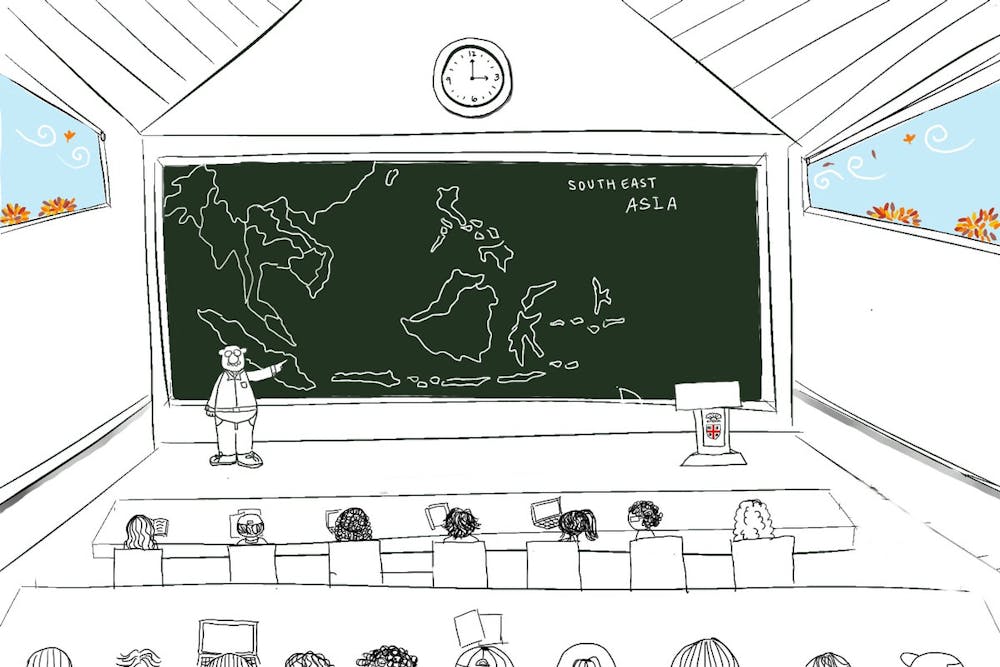The Southeast Asian Studies Initiative, a student-led project seeking to increase the representation of Southeast Asia in the University’s curriculum, is pushing for something new: a dedicated department.
Beyond ongoing advocacy efforts and a campus speaker series, the organization is looking to create an official department designated for Southeast Asian studies at the University, according to SEASI member Ayla Kim ’25.
Kim said that without such a department, “you’re missing a whole region of Asia that has a long, rich history, has been affected by American imperialism and is up-and-coming in the economy today.”
In 2019, members of SEASI worked toward a proposal with goals that included adding classes in Southeast Asian studies and introducing tenure-track positions for faculty in the field, The Herald previously reported.
In an email to The Herald, Deputy Dean of the College for the Curriculum Sydney Skybetter wrote that proposals for new academic programs “must be submitted by voting members of Brown’s faculty (to the College Curriculum Council) with the support of an academic unit, such as a department or institute.”
“Brown offers a number of courses related to Southeast Asia in a range of departments such as archaeology, ethnic studies, history of art and architecture, history, international and public affairs, music and religious studies,” he added. “In addition, the East Asian studies department currently offers courses in Vietnamese.”
In the last year, the number of undergraduate courses on Southeast Asian communities increased from two to 10, according to Kim. The University offered its first Vietnamese language courses in fall 2021, The Herald previously reported.
To raise awareness of Southeast Asian studies, SEASI has brought faculty lecturers from other institutions to speak on campus, Kim added.
“I very much appreciate the activism,” said Daniel Ibarra, professor of earth, environmental and planetary sciences and environment and society. Ibarra is Filipino American and does fieldwork in Southeast Asia, predominantly in the Philippines. He plans to co-teach a course next academic year on the history of climate studies with a focus on East Asia and Southeast Asia, he said.
Ibarra noted that he views the study of Southeast Asia as distinct from the study of East Asia. “The history, language and culture of Southeast Asia is fairly different (from) that of East Asia,” he said.
Ibarra added that SEASI’s goal of creating a new department faces logistical hurdles. “Academia is a slow process, and students would like it to be fast. Going from an initiative to an institute or department is a really big step that requires a lot of backing from a lot of stakeholders,” he said. “It requires significant investment from donors or the University choosing to use its endowment.”
Despite these logistical challenges, Ibarra still supports the SEASI and its mission. “It’s a way for the students to push the faculty and the upper administration to think: How can we not just be a local university, but how can we expand our global impact?” he said.
For Kim, the group “being implemented in the first place — having a collective body of students who are primarily from the Southeast Asian region (who) have come together because they want to see themselves, their families, their lineages (and) their cultures represented, studied and acknowledged in academia” is one of SEASI’s greatest achievements, she said.
“The fact that we established this club in the first place shows that there's real initiative to have more representation,” she added. “I'm just thankful that we even have this space and this group to begin with.”





